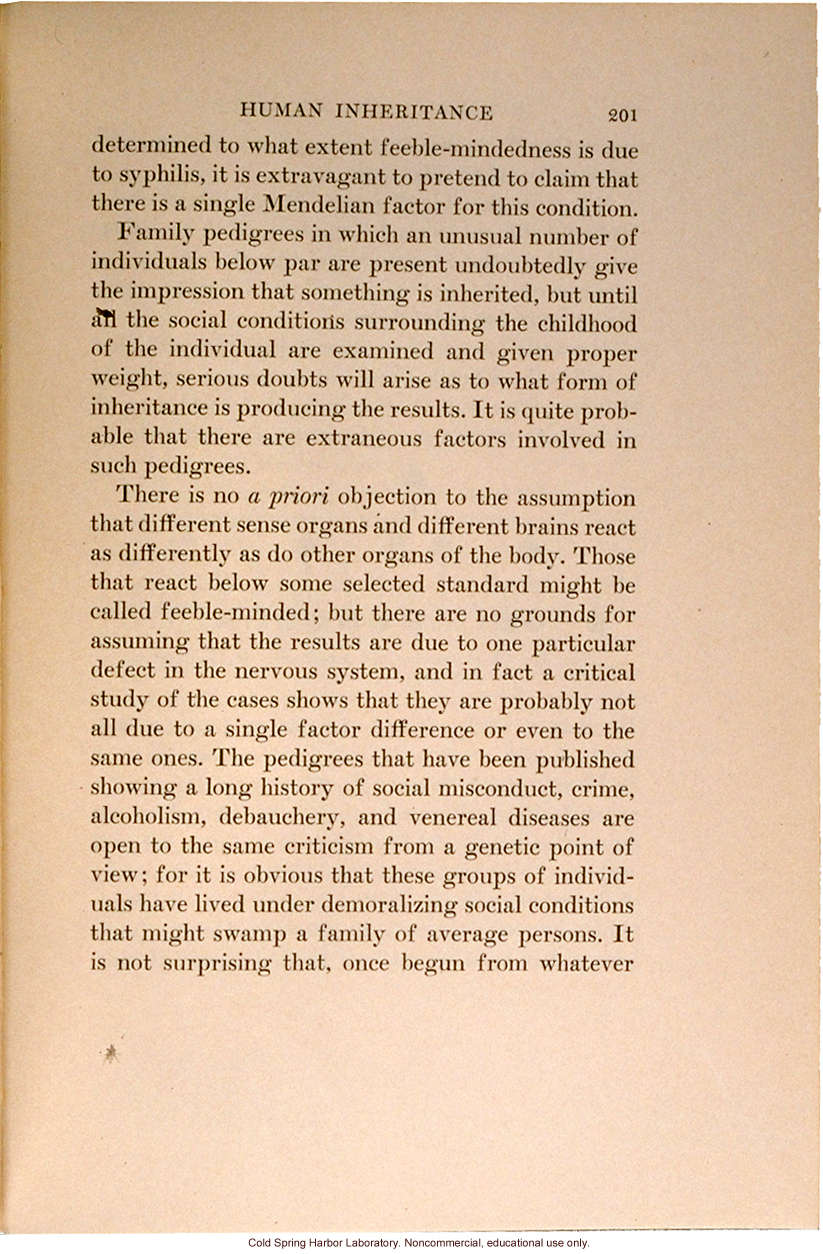Human Inheritance 201
determined to what extent feeble-mindedness is due to syphilis, it is extravagant to pretend to claim that there is a single Mendelian factor for this condition.
Family pedigrees in which an unusual number of individuals below par are present undoubtedly give the impression that something is inherited, but until all the social conditions surrounding the childhood of the individual are examined and given proper weight, serious doubts will arise as to what form of inheritance is producing the results. It is quite probably that there are extraneous factors involved in such pedigrees.
There is no [italics]a priori[end italics] objection to the assumption that different sense organs and different brains react as differently as do other organs of the body. Those that react below some selected standard might be called feeble-minded; but there are no grounds for assuming that the results are due to one particular defect in the nervous system, and in fact a critical study of the cases show that they are probably not all due to a single factor difference or even to the same ones. The pedigrees that have been published showing a long history of social misconduct, crime, alcoholism, debaudhery, and venereal diseases are open to the same criticism from a genetic point of view; for it is obvious that these groups of individuals have lived under demoralizing social conditions that might swamp a family of average persons. It is not surprising that, once begun from whatever
[end]


